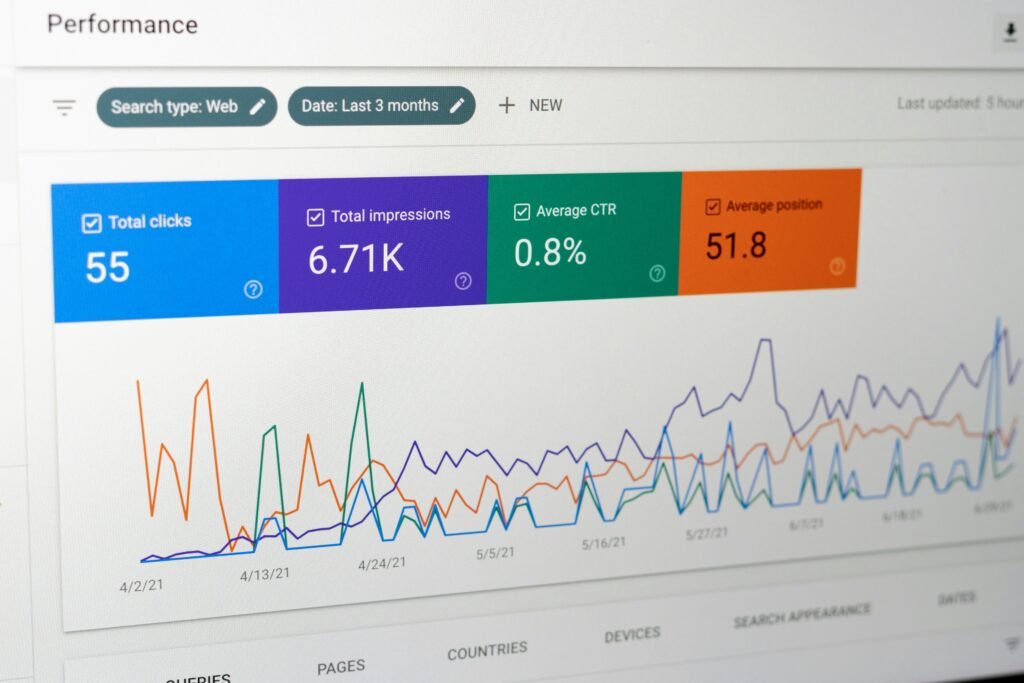
Choosing the right domain extension for your website can feel daunting, especially when deciding between .co and .com. The battle between these two options is always raging, as businesses must choose wisely. This guide will dive into the heart of this debate to understand the fundamental differences between these extensions and how they can impact your brand. When I started my first website, I realized that picking the right name was essential for building a strong online presence. The extension you pick can significantly influence how people perceive and find your site.
Both .co and .com are among the two most popular choices on the internet, each with its strengths and weaknesses. The .com extension is well-known, widely used, and often seen as a safe choice due to its broad recognition. However, .co is shorter and can be a good fit if your preferred version of .com is already taken. When I was looking for a domain, I had to look at what makes each one unique and determine which best fits my needs and helps my brand stand out.
Deciding can seem overwhelming, as it may affect your brand and business. It’s a big decision, often complicated by the fact that there are so many available options. Most businesses must ultimately settle on an extension that depends on their scope, budget, and available names that are well-suited to their goals. In this article, we will explain what domain extensions are and explore how to make the right choice. I wish I had known these things when I started!
Understanding Domain Extensions
A domain extension is the last part of a domain name, appearing right after the final dot in a web address or URL. For example, in example.com, the .com is the domain extension. These extensions help categorize websites and indicate their purpose or origin. Some of the most common ones include:
- .com – Originally created for commercial businesses, but now used broadly by all types of sites.
- .org – Typically associated with non-profit organizations, though it is open for general use.
- .net – Originally intended for network-related entities, but now generally used by a variety of businesses and service providers.
- .edu – Reserved for educational institutions, mainly in the United States.
- .gov – Strictly reserved for the U.S. government, ensuring official credibility.
There are many newer, more specialized TLDs, such as .tech for technology-related sites, .shop for e-commerce, and .blog for content creators. Additionally, country-specific TLDs like .uk for the United Kingdom and .jp for Japan allow businesses to establish a local presence. Choosing the right extension depends on the nature of the site and its target audience.
Key Differences Between .com and .co

A domain name is an essential part of a website that plays a crucial role in labeling, reliability, and even SEO. When comparing .com and .co, the difference lies in their origins and how they are perceived. The .com extension has been a long-standing favorite since it was created in 1985, originally intended for commercial businesses. Over time, it has become the go-to choice for all kinds of sites, making it the most trusted and widely recognized option worldwide.
On the other hand, .co started as a country code for Colombia but was later rebranded for global use. It now serves as a modern, shorter alternative to .com and is particularly attractive to companies looking for a fresh, innovative image. The primary differentiator is that .co is increasingly seen as a challenger, often favored by startups and businesses that want to stand out.
Both extensions have unique attributes that impact visibility and reputation. While .com remains the most trusted and widely used, .co has gained traction, especially among newer businesses. The decision between the two depends on understanding the basics of each extension and considering which best fits your brand’s goals and audience.
History: Understanding .co vs. .com
When we examine the past of .co and .com, it’s vital to emphasize their roots.
What Does .co Mean?
The .co extension first originated as Colombia’s country code top-level domain (TLD) but took on a new role in 2010. At that time, the Colombian government introduced policies that allowed global entities and individuals to register a .co domain. The purpose was to promote online entrepreneurship and innovation. giving businesses a chance to create a snappy Internet presence with a modern feel.
As .co gained popularity, it started taking on a different identity. Because of its similarity to .com, it quickly became associated with company, corporation, or commercial endeavors. This made it a preferred choice for brands that wanted a sleek, professional name while still maintaining credibility.
Many businesses see the adoption of .co as an attractive alternative, especially because .com extensions are now difficult to come by. By doing so, companies open up new business opportunities while securing a domain that feels modern yet widely recognized.
What Does .com Represent?

The .com domain name is the most widely used extension on the internet today. Its abbreviation stems from “commercial” and was crafted initially with the belief that only businesses would require such domains. It was introduced in 1985 by Verisign, a leading domain registration company, at a time when the internet was still in its early stages.
As .com quickly gained traction, it became the go-to choice for emerging businesses wanting to establish their digital footprint. This demand grew rapidly during what is now referred to as the “dot-com bubble.” Over time, as its popularity grew, even individuals began using this extension not only for commercial reasons but also for personal accounts.
Because of this shift, .com has transformed from simply being a beacon of commerce to something much more. Today, it is virtually synonymous with the internet, making it the first choice for most websites. Due to its strong reputation, .com remains the most recognized and sought-after domain extension worldwide.
Now that we understand the significance of .com, let’s dig into their pros and cons to explore whether .com or .co is the better choice for your needs.
Advantages and Disadvantages of .co vs. .com
Let’s assess the pros and cons, examining why .com is superior in certain respects and the opposite holds true.
Advantages of .Com
.com has a long history of being the most recognized and trustworthy domain extension globally, making it the prime TLD for businesses. Due to its widespread use, users instinctively trust a .com website, as it is associated with credibility and established professional websites.
Many people instinctively start entering a URL with .com, making it easier for visitors to remember. Its global recognition is unarguable, and it is extensively used across industries. Additionally, SEO benefits come from its history, as domains with .com often perform better in search engine rankings due to their reputation.
Disadvantages of .Com
The popularity of .com brings availability issues, turning the search for an open .com URL that fits a preferred company name or keyword phrase into a genuine struggle. Due to high demand, many short, relevant names are already taken or owned by someone, often turning domain acquisition into a pricey affair. In some cases, premium domains can be usually pricey relative to other TLDs, leading to higher costs
Advantages of .Co
One major advantage of .co is its availability, making it easier to find key phrases or shorter, catchy names compared to the exhaustive competition for .com domains. In many instances, getting a .co domain is hassle-free, providing better alternatives for businesses that want a modern appeal.
Its two-letter nature triumphs over three-letter domains in recall value, making it a popular choice for startups and innovative businesses looking for a fresh alternative. With better options available, brandability improves, and names remain direct, accessible, and memorable.
Disadvantages of .Co

One major disadvantage of .co is the potential confusion among internet users who are accustomed to .com as the normal domain extension. Many people accidentally add ‘m’ when they type, which can lead to a possible loss of website traffic. Since .co is still in its relative infancy compared to .com, it has lesser trust and is not yet universally trusted, which can affect how people perceive a website.
Additionally, the higher cost of registration and renewals per year makes it a less comprehensive offering for businesses looking for a budget-friendly option while gaining popularity.
Key Elements to Weigh When Selecting
When deciding between .com and .co, several important factors need to be considered carefully.
Search Engine Optimization (SEO)
Search Engine Optimization (SEO) plays a pivotal role in making a site more visible on search engine ranking pages (SERPs), helping to boost both organic and inorganic traffic. When deciding between .co and .com, the choice of domain extensions can impact rankings, so it’s important to carefully consider the whole name for better visibility. A strong, concise, and memorable domain that’s easy to spell and includes primary branding elements, along with important keywords, can improve SEO. While a particular TLD might have some effect, other factors like quality content and backlinks often outweigh its influence.
Does .com Perform Better for SEO?
Many website owners wonder if selecting a .com has an advantage over opting for a .co when it comes to achieving good SEO. The truth is, Google has emphasized that it regards domain extensions the same in terms of ranking. However, an important element to consider is user perception, as people typically link websites to a .com extension, seeing it as more credible and reliable. While content remains integral, balancing SEO tips with branding can make a difference in how your site performs.
Reliability: Is .com Still the Top Pick?
Many online users still trust .com domains as the gold standard, much like a cozy vintage cardigan that feels comfortable and dependable. Since the earliest internet days, people remember .com and link it to the legitimacy of a site, giving it an instant boost in credibility. While newer extensions like .co are gaining traction, they often lag behind in perception unless backed by effective promotion and a strong standing to earn user confidence.
Branding
The choice between .com and .co in branding depends on how a domain wants to communicate its identity. A .co can signal innovative thinking, making it an ideal fit for startup culture and disruptive companies looking to stand out. It appeals to creative individuals aiming for a fresh, modern image. Conversely, a .com extension frequently suggests a reputable standing and dependability, making it better suited for traditional businesses and services that prioritize trust and familiarity.
Availability
One reason for the rise of .co is that it’s easier to find than .com, where many memorable titles are already taken. If you seek a more favorable prospect at landing a succinct, striking domain that captures people’s attention, .co can be a great option. While .com remains the most commonplace of all TLDs and significantly overpowers others in terms of popularity, the fact that more than half of global websites use this TLD doesn’t mean it’s always the best choice. Some data can be misleading
Pricing
Choosing between .co and .com comes down to costs and long-term value. While securing a .com domain is often pricier due to high demand, many businesses still consider it a smart investment. A strong name with brand recognition helps with customer recall, reinforcing trust, and driving revenue. On the other hand, obtaining a .co can be more affordable and easier, but if not marketed well, it could lead to losses in potential traffic. Instead of settling awkwardly phrased alternatives, some brands prefer investing in the optimal choice upfront, as a premium domain can pay more than its worth in dividends over time.

Long-term strategy
Picking the right domain is a long-term decision that can influence your online success. A .com is often favored due to its established reputation, which can contribute to better SEO, greater domain authority, and a long-lasting online presence. Over time, this makes it a strong choice for businesses looking to build credibility. However, a .co can still offer a unique advantage by providing a solid foundation for brand growth, especially for startups aiming for a modern edge to set themselves apart in a competitive market with a distinctive identity and strong search engine visibility.
Which domain will define your brand, .co or .com?
Choosing between .co and .com depends on your brand’s identity, target audience, and long-term goals. A .com remains the dominant choice for internet users, making it highly reputable and widely trusted. However, .co is a modern alternative, gaining traction among startups looking for something fresh yet professional. Using a trusted domain registrar like Web.com can help in securing the right extension that supports growth and strengthens your online presence. A short, unforgettable domain increases the chance of a perfect click, so it’s essential to lock in your ideal name today.
How To Buy a .co or .com Domain
To buy a .co or .com domain, start by choosing a reliable registrar that is ICANN-accredited, such as GoDaddy or Namecheap. These companies offer a variety of registration options, including privacy protection, automated renewals, and other benefits to keep your domain secure. It’s simple—just search for the name you need, check availability, and place an order. Ultimately, you should remember to choose a legitimate provider to manage your domain through a secure process. If you’re unsure, we recommend checking sales pages for discounts and considering the duration that suits your needs.
FAQ

Is .com Reliable?
Absolutely, the .com extension is one of the most reliable top-level domains (TLDs), first introduced in 1985 and widely established as the standard for businesses. From a trustworthiness perspective, nearly half of all websites use this domain, making it a familiar and credible choice.
Unlike some unreliable domain extensions, .com is commercial and helps promote businesses and specific interests while offering valuable information. However, verifying authorities behind a site is crucial always cross-check facts from trustworthy sources to avoid bias. Assessing objectivity is key in determining reliability, ensuring the content you consume is accurate.
Is .co and .com The Same?
No, .co and .com aren’t the same they serve different purposes. The .com extension is traditionally used by business organizations operating on the internet, making it the most recognized and widely trusted domain extension. On the other hand, .co represents business or enterprise and has been adopted mainly by new ventures because of its abundant selection of preferred titles. While both categories still use these domain extensions, .co is seen as a modern alternative, making it potentially available, particularly for businesses struggling to secure a traditional extension like .com.
Is .com Better Than .co?
Deciding which extension is superior between .com and .co depends on several criteria when comparing them. The market awareness and mental acknowledgment of .com make it the preferred choice for businesses seeking a widely recognized presence with a global reach.
It is indeed prevalent and often favored due to its trust factor, though finding an innovative name for lower costs can be challenging. On the other hand, .co serves as a new alternative, making it ideal for startups aiming for a tech-savvy image. The importance of choosing the right domain depends largely on the business model, target audience, and branding goals.
Are .co Domains Good
Definitely, the popularity of .co has grown among aspiring business owners and startups looking for a modern web presence. Many are choosing this domain as it works well when a .com is unavailable but still needed for a short, professional, and memorable web address.
Moreover, search engines show no favoritism toward different types of domains, making .co a legitimate and widely accepted option. It is particularly useful as an alternative for a business that wants a strong online identity.
What Country is .co?
True, .co initially launched as a national identifier top-level domain (ccTLD) for the nation of Colombia. However, due to extraordinary promotional initiatives, it has gained international recognition and is now globally accepted for businesses and organizations worldwide.
Unlike some country-specific domains, .co can be registered without restrictions, making it a popular choice irrespective of geographical affiliation. The Internet Assigned Numbers Authority (IANA) designated CO under the ISO 3166-1 standard to represent Colombia, a South American country with a population of approximately 45 million people.
Why is .com more expensive?
Seemingly, the elevated cost of .com domains arises from their unmatched fame and market supremacy in the internet’s timeline. Big brands often end up spending lavish amounts to obtain a striking and appealing name, while prices quickly go up due to scarcity.
With less competition and more availability, .co domains cost less. Unlike older Top-Level Domains (TLDs), which are administered by different parties competing, new domains like .co are owned by a single company, allowing them to charge cheaper fees. The high demand for .com names leads to a higher price point at both initial purchase and renewal, making it a key reason for its expensive nature.
What is a .co domain used for?
The .co extension is a generic top-level domain (TLD) that stands for company or corporation. Originally designated in the early 1990s for businesses associated with Colombia, it has since become widely used by individuals around the world. Many startups and brands prefer .co because it is short, modern, and easy to remember, making it a strong alternative to .com.
Conclusion
Selecting the appropriate domain extension, whether .co or .com, is crucial for your online presence and requires thoughtful deliberation. Each has its advantages: .com, frequently associated with reputable companies, offers a worldwide presence and is acknowledged for its enduring trustworthiness and increased SEO worth. On the other hand, .co is a popular choice for startups, innovators, and platforms aiming for a modern image. While .com may offer more trustworthiness and global reach, .co provides a fresh, disruptive digital presence. Your decision depends on factors like branding objectives, name availability, SEO approach, and budget, as .com domains tend to be pricier. Whether you choose .co or .com, both can help shape a strong brand identity and enhance your online strategy. At Kinsta, we provide hosting solutions for WordPress users, ensuring expert support, security, and speed while helping customers save money.

